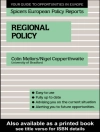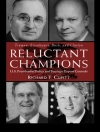In 1976 capital punishment was abolished, and Time Canada was legislated out of existence. The Berger Commission”s pipeline enquiry became an unprecedented examination of the southern impact on the Canadian North and its peoples. After the Anti-Inflation Board”s first full year inflation rates were declining, but the economy was sluggish and unemployment was up.
In international affairs a framework for the contractual agreement was signed between Canada and the European Communities: the Saskatchewan government”s first steps towards nationalizing potash became an issuel and widespread controversy arose over the decision not to allow Taiwanese athletes at the Olympics to compete as representatives of the Republic of China.
Joe Clark narrowly defeated Claude Wagner to become Conservative leader; a crisis blew up over air safety and the use of French in the air; and Jean Marchand and James Richardson resigned from the federal cabinet over bilingualism. The cultural issue underlying these events soon culminated in the November 15th election victory of the Parti quebecois.
The 1976 edition of the Canadian Annual Review
is both a concise convenient record of the year and a responsible appraisal of these important developments. Compiled by a corps of Canadian scholars and experts, writing under the direction of an outstanding Canadian historian and political commentator, it is authoritative and eminently readable. Its articles can be read consecutively for interest and instruction, or they can be spot read with ease to locate particular information. A detailed and thorough index greatly enhances the value of this annual, now in its seventeenth year as an indispensable reference book for those concerned directly or indirectly with Canadian public affairs.











